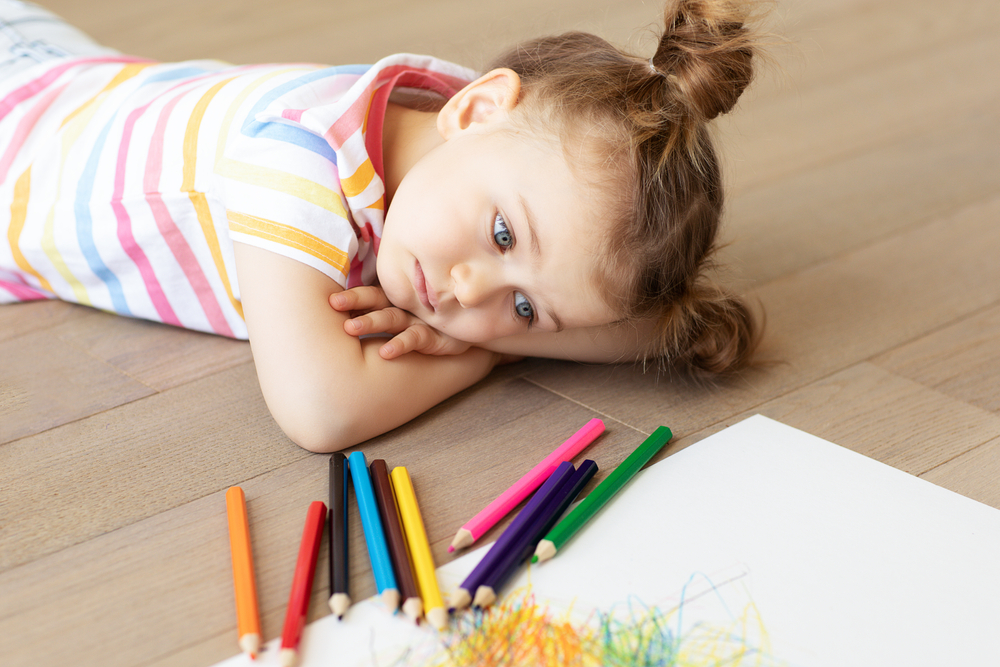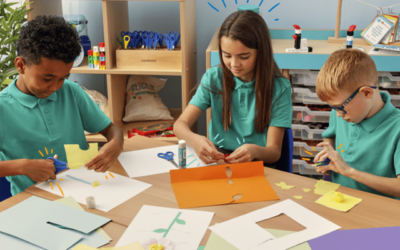Teaching Emotional Literacy to Support Children’s Mental Health
This expert article was kindly written by Inés Lawlor who has over 20 years experience in occupational therapy. She has worked with children with neurodevelopmental conditions, intellectual disability and more recently mental health difficulties in clinics, home and education settings.
A commotion about emotions
The emotions we attach to experiences, and interactions with other people (i.e., how we feel about them) influences our memory of those experiences and how we behave in future similar circumstances. To manage our emotions, we need to identify and name our feelings (emotional literacy), then reflect, refine, and modify our behaviour for next time (emotional intelligence). For example, a child may have been hoping to play with a particular toy but sees that another child is already playing with it. This may make them feel anxious, worried, or upset.
A child who can recognize and express these emotions will be more equipped to either seek help from an adult or reach a compromise on sharing the toy. However, if the child can’t yet recognize or doesn’t have the vocabulary to express what they are feeling, they may become anxious or overwhelmed. This could potentially lead to greater upset, frustration, anxiety, or disruptive behaviour.
For these reasons, developing emotional literacy and emotional intelligence in young children has been shown to support their long-term mental health. Being able to verbally express and react to one’s emotions gives a child a sense of control and confidence over their surroundings. This helps reduce anxiety and increases confidence in new social situations and activities. The child then feels equipped to handle whatever emotions new experiences might bring. In addition to boosting their mood and self-esteem, a broad emotional vocabulary improves peer relationships. This is a factor which has been shown to support positive mental health.

Emotional literacy is a skill that we begin to learn in childhood. It continues to develop throughout life as our emotions and the vocabulary required to describe them increase in complexity. In typically developing children, educators can support the development of emotional literacy by:
- Naming an emotion they are experiencing themselves (e.g. teacher feels sad when people don’t hang their coats up).
- Drawing attention to the facial expression and feelings of characters in books or stories (e.g. how do you think that made the little pigs feel?).
- Gently reflecting on what feelings a child might be expressing (e.g. it looks like that made you feel sad).
Some children (e.g., those with developmental and language delay or Autism) may find it more difficult to identify a feeling in themselves or others. Or they may have difficulty in matching the correct word to a feeling.
Autistic individuals, often struggle to recognize facial expressions. This is usually because a human face contains a lot of sensory information which they often find difficult to tolerate. Therefore, they focus on one aspect of the face or look away, thus missing the whole expression. Using pictures of faces, or products such as ‘emotion masks’ or ‘face stones’ can help children learn to recognize and describe emotions in themselves. Children with language and emotional vocabulary delay can also use these products or colour codes or number systems to show how communicate their feelings.

Emotions are complex, so need time and practice to master. For educators it’s about incorporating both positive and negative emotional vocabulary into all activities whilst balancing this with not overly focusing/ ruminating on emotions either. In this way, children will learn to express how they feel and then develop on skills that will support their mental health throughout life.
Take a look at our mental health and emotional wellbeing hub for more helpful information. Also, have a read of our bog post on what wellbeing products can help support your children’s mental health.
Related blogs
Your Guide to the School-Based Nursery Capital Grant
What is the School-Based Nursery Capital Grant? For schools aiming to enhance their nursery facilities, the School-Based Nursery Capital Grant provides a simple funding solution. This grant is open to eligible state-funded primary schools in England that...
What Goes In, Must Go Out
Creating a Circular Economy in Your Nursery Author: Nick Corlett Sustainability Manager at LEYF Sustainability is more than a trend—it’s a shared responsibility, and the nursery is the perfect place to nurture these skills. Every day...
Top tips to create a SEND-Friendly Primary School Classroom
Author Lindsay Robinson Lindsay Robinson has been a primary school teacher for 23 years and is passionate about achieving the very best outcomes for children through quality first teaching and experiences. I remember receiving very little guidance during my teacher...


